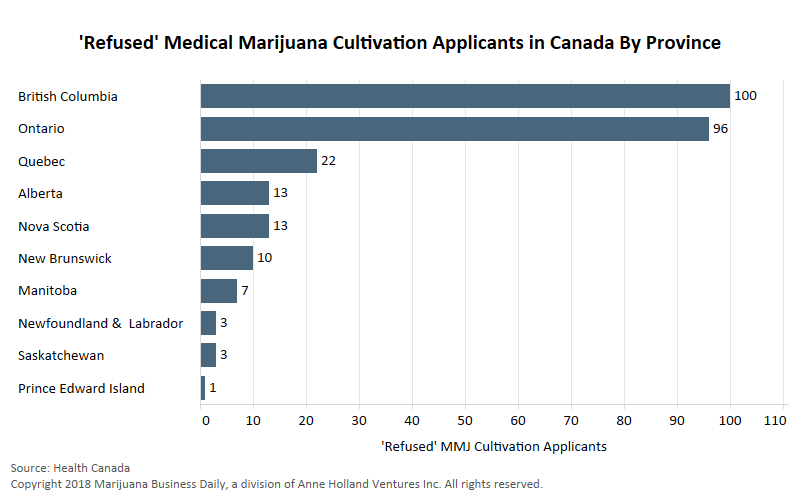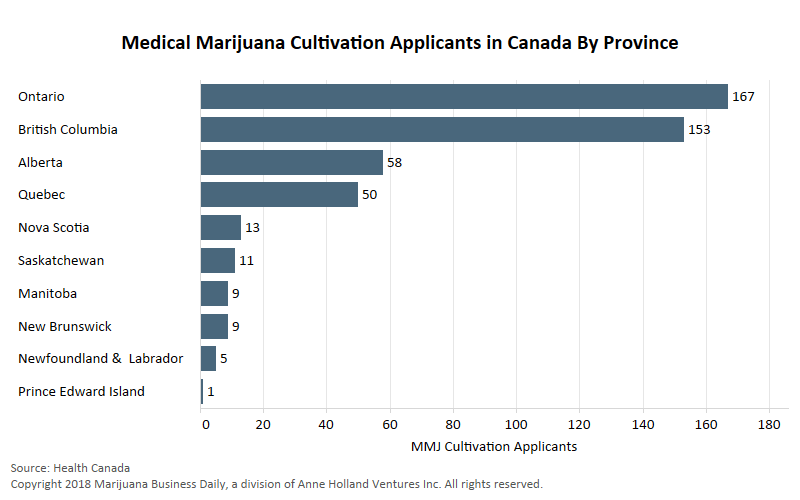Alcohol companies should be watching their backs.
That’s the warning from Torsten Kuenzlen, a former executive for The Coca-Cola Co. and Molson Coors. In his opinion, legal cannabis has an obvious competitive advantage over alcohol products.
“All alcohol is consumed only as a liquid. Cannabis meets more consumer needs and motivations in the way that it’s consumed,” Kuenzlen said, adding that it’s a matter of time before cannabis companies start buying alcohol makers.
Kuenzlen took the reins of Sundial Growers, a privately owned Canadian cannabis company, earlier this month.
He aims to “build the Coca-Cola of cannabis.”
Marijuana Business Daily caught up with Kuenzlen to talk about synergy between cannabis and alcohol companies, cross-sector tie-ups and how he plans to make Sundial one of the top companies in Canada.
Do you see cannabis as a threat to alcohol companies?
Yes, clearly there is going to be access to a recreational alternative for adult use. There can be no doubt about it.
When you look at the size of the opportunity, the profit pool for cannabis is as big as the entire alcohol industry in three to five years.
Given your experience as an alcohol executive, what product has a competitive edge in a fully legal environment?
Interestingly, all alcohol is consumed only as a liquid.
Cannabis has the advantage over alcohol in that it meets more consumer needs and motivations in the way that it’s consumed.
Alcohol companies need to think about how to turn that into an opportunity rather than a threat.
Constellation’s approach was a good one. They made a seed investment (in Canopy Growth) to learn more about cannabis and figure out where there will be synergies – and there’s no doubt there will be synergies between cannabis and alcohol businesses.
Where do you see overlapping opportunities or synergies?
There are needs and motivations of consumers that are similar between alcohol and cannabis. But cannabis accesses motivation and needs that alcohol can’t go after.
The synergies are a larger pool of opportunities to meet more consumer needs than alcohol alone can.
They both work with the provincial liquor board (in Canada), so there is potential there.
As we look at the emerging retail landscape, there’s some customers who will be in both the alcohol and cannabis industry. So there’s synergy there to leverage those relationships.
Do you foresee more tie-ups between alcohol and cannabis companies?
There can be no doubt.
We know that virtually all alcohol companies are very carefully looking at the cannabis space and looking to partner in some shape or form. Those shapes can be anything from innovation alliances with pharma and nutraceuticals – and all the way to partial ownership.
Today, alcohol companies are buying cannabis companies. We will see a time when cannabis companies start buying alcohol companies. Definitely within the next three to five years.
Is Sundial looking at a tie-up with an alcohol company?
We know that all of the big companies are looking at cannabis, so obviously we’re talking to many of them. What form that takes, would we partner with somebody, and for what reason? To be determined.
Can you expect that we will enter strategic partnerships in alcohol, pharma, cosmetics, food and beverage? All of those are possibilities and opportunities.
Why did you choose Sundial?
Fast-moving consumer goods executives, and particularly alcohol executives, are in high demand. There’s quite a few cannabis companies calling.
If you think about where you want to spend your time, there won’t be an opportunity like this in our lifetime.
Then you look at all the cannabis companies that exist, and you figure out which ones have the best strengths and opportunities.
Which ones have the best chance to succeed and be one of the top two players sustainably? You often find that in new industries, the first movers start the race and run really hard, then fade away.
It’s the fast followers that learn from the mistakes that the bigger players are making in the beginning, then do it different and better.
Sundial has an opportunity to be a major player in Canada and internationally over the next couple of years.
Do you foresee legalization in the United States?
In my mind, it’s a question of when, not if, federal legalization will come south of the border.
So the opportunities to build great brands, innovation and capabilities north of the border for the day it becomes federally legal in the states is a monster opportunity for Canada.
How do you weigh international opportunities?
In terms of building global brands, we believe we can build the Absolut Vodka or Coca-Cola equivalent of cannabis.
When you fast forward 10 years, consumers will be able to be anywhere in the world, and they will be able to buy a brand that has the consistent experience they expect.
Matt Lamers can be reached at mattl@mjbizdaily.com




